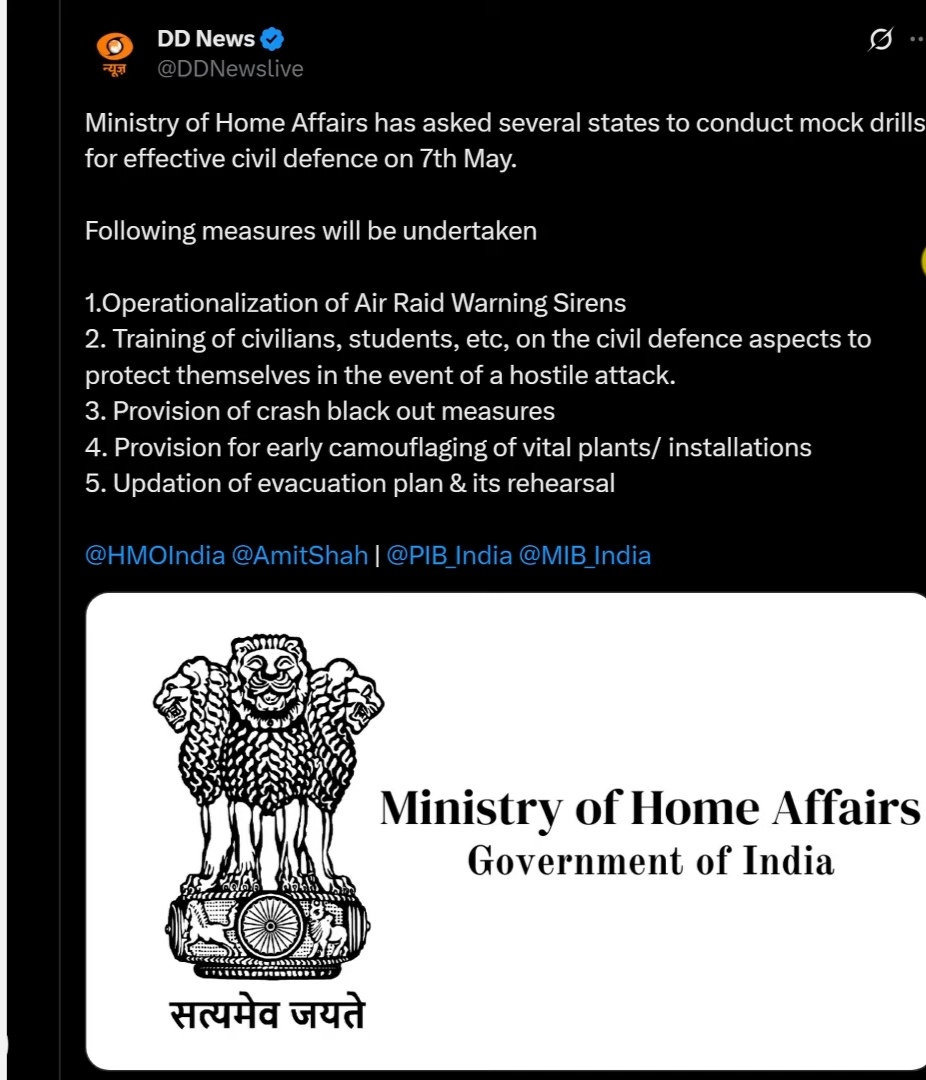In a move aimed at strengthening national security and emergency preparedness, the Ministry of Home Affairs (MHA) has announced a nationwide Civil Defence Exercise to be conducted on May 7, 2025. While officially described as a routine drill, the timing of the exercise—just days after the Pahalgam terror attack in Jammu and Kashmir—has sparked speculation that India is preparing for any possible escalation with Pakistan.
The Pahalgam incident, which claimed the lives of several security personnel, has heightened concerns about cross-border terrorism and internal security. Though the MHA has not directly connected the drill to the attack, many experts believe the exercise reflects India’s broader defence preparedness strategy.
Nationwide Mock Drill to Involve All Key Agencies
The civil defence exercise will involve various agencies, including the National Disaster Response Force (NDRF), state police, fire services, and paramilitary units. The drill will simulate emergency scenarios such as terror attacks, natural disasters, chemical leaks, and other crises to test India’s disaster response and inter-agency coordination.
A senior official from the MHA stated, “The drill is designed to enhance our national response capabilities. With rising threats both natural and man-made, we must stay vigilant and ready.”
Public places like hospitals, schools, transport hubs, and government offices may be included in the simulation. The government has asked citizens not to panic during the drill, as sirens, emergency vehicles, and mock evacuations may be part of the activity.
Growing Tensions with Pakistan: A Strategic Message?
Following the Pahalgam attack, tensions have risen along the India-Pakistan border, with increased troop monitoring and intelligence activity. While no formal link has been drawn between the drill and potential military readiness, security analysts suggest that India is sending a strong signal of strategic preparedness.
“This could be seen as a message to adversaries that India is alert, organized, and ready to act if provoked,” said a retired defence analyst.
Why This Matters
India has long faced the dual threat of natural disasters and terrorism. Conducting civil defence drills not only helps improve emergency response times but also educates citizens on how to stay safe in critical situations. In today’s climate of geopolitical uncertainty, drills like this are more than just procedural—they’re a vital part of national resilience.